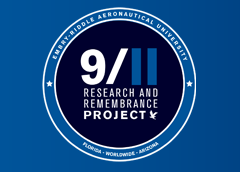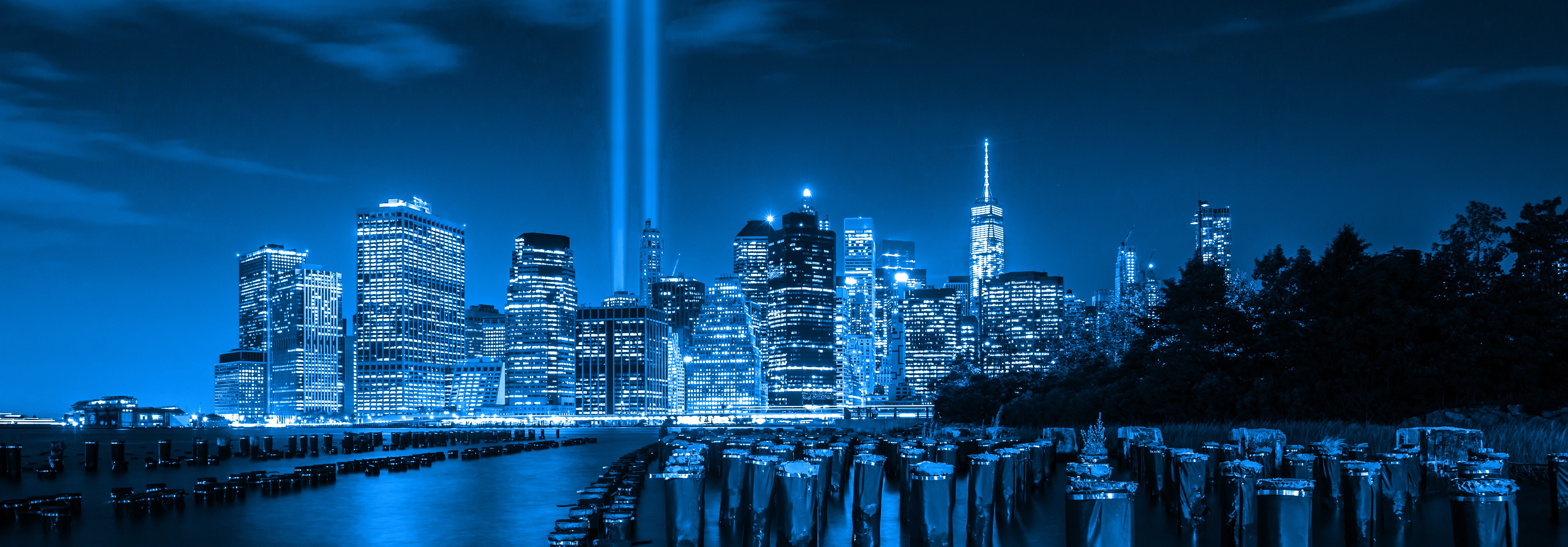Robert Coda Reflects on 9/11 as a Security Manager at Newark Airport
Document Type
Personal Reflection
What were you doing on 9/11? (Or, What was your interviewee doing on 9/11?)
September 11, 2001, was a beautiful morning in New York. The sky was pristine. The sun shining bright and a cloud could not be seen as far as the eye could see. My coworkers and I, who worked at the administration building, began showing up for work like any other morning. We grabbed our coffee, signed onto our computers, and checked the phones for voice messages. Just like any other morning.
The Administration Building at Newark Airport sat in the middle of the airfield with 360 degrees of unobstructed views. Our offices faced east and we had a clear shot of lower Manhattan. It was a very clear morning so when we observed black smoke coming out of the south tower of the World Trade Center, we all wondered what was going on. The obvious thought was that a fire broke out on one of the upper floors. There was no information on the news as of yet so that had to be what was going on. Shortly thereafter, rumors circulated that a commuter plane had flown into the tower. How could that be? It was an exceptionally clear day. No one could miss seeing the World Trade Center from an aircraft. This was, after all, New York City.
As my co-workers and I stood there debating the “what if’s”, we observed a huge fireball on the side of the north tower. In awe, we looked at each other and asked, “what the hell was that”? We would soon come to find out that a second aircraft had flown into the World Trade Center. The angle at which the aircraft approached the north tower was obscured from our line of sight. My assistant and I were already working in an airport security capacity for the PortAuthority of NY & NJ, the airport’s operator. We turned to each other with a gut-wrenching feeling that something was seriously wrong and what we just witnessed was no accident. No sooner did we exchange our thoughts than we heard the crash alarm sound in the police garage beneath the administrative offices. That horrid air raid siren. Over and over and over and over. We looked at each other and our fears were confirmed, no accident. Police cars began to speed out of the Administration Building heading off the airport. Responding to calls for backup.
The control tower notified Aeronautical Operations that flights were being grounded across the country. Everything was quickly coming to a stop.
There was a lot of scrambling going on now with everyone in the building. The major networks were now carrying the story and confirmed two aircraft flew directly into the north and south towers of the World Trade Center. We watched the smoke continue its ascent. Then, in pure disbelief, we saw the first tower fall like a pancake. Another co-worker became hysterical crying, “what happened to all those people”? Thousands of people worked in both of those towers. The 61st Floor of 1 World Trade Center was the central office of the Port Authority’s Aviation Department. Senior aviation department staff worked from this location. Staff that we interacted with daily. People we knew well. “I don’t know,” I answered. All I could say was, “I don’t know.” I didn’t know anything at that point only that I was in shock. Shortly thereafter, the second tower came down. Lower Manhattan was covered in an enormous black cloud.
Two icons of the New York City skyline, of the entire metropolitan area, were gone.
In the hours and days that followed, countless meetings were held between the various law enforcement agencies, airport staff, airline station managers, and the FAA. Security Directives were being issued by the FAA at an unprecedented rate. For the first week that followed, Newark Airport, like other airports for the most part ceased operations. There was a very visible police presence throughout the facility. On the roadways, on the terminal frontages, inside the terminals at the ticket counters, along the airport perimeter. All in response to an unfolding litany of information on what took place at ground zero and why.
The cleanup would take years. Operations eventually resumed but in quite a different manner than before. Security programs, credentialing, background checks, entered a new era, and managing those operational components would change forever.
How did 9/11 affect you personally and or professionally?
I was changed forever. We all were. How could anyone not be?
The second half of my professional career was spent putting the pieces back together. Rebuilding a system to mitigate to the extent possible, any individual from commandeering an aircraft to be used as a weapon of mass destruction. I did so in memory of those who perished. I did so to set the stage for those who would come after me and carry the torch forward.
What do you want future generations of professionals, particularly those going into your field, to know about 9/11?
The challenge is a daunting one. The aviation security professional wears many hats. They are part law enforcement, part military, and part engineers. A good aviation security professional understands that physical barriers and technology are not the only tools to secure an airport. Employee training and awareness are paramount. Ramp agents, ticketing agents, fuelers, concession staff, virtually any airport employee is part of your front-line defense. The aviation security professional cannot be everywhere twenty-four hours a day. Your fellow employees are your eyes and ears in the field. Their observations and feedback are invaluable in assessing any suspicious behavior. A good rule of thumb for employee security training is, “If you see something, say something.” A good aviation security program is made up of a myriad of policies and procedures that address the threat to civil aviation. The role of the aviation security professional is to balance and prioritize those components of the aviation security program that best address the current needs of the facility, wherever it may be. However, our world is always changing. Technology becomes more sophisticated. Hackers become more astute. Physical barriers break down over time. Your role as an aviation security professional is to always be mindful of the environment in which you are part of. New threats to civil aviation must be assessed and countermeasures must be developed to mitigate the threat to human life. In doing so, the aviation security professional helps ensure that the traveling public remains confident that air travel is safe and secure. In doing so, the aviation security professional stands as a sentinel so that those who perished in the attacks on 9/11 did not perish in vain.
Always remain vigilant.....always!
ERAU Active and Alumni Graduating Class of
1980
On 9/11, what sector were you (OR your interviewee) in?
Airlines, Not a pilot
On 9/11 what was your (OR your interviewee’s) occupation? (optional)
Airport Security Manager (Retired) Newark Liberty Int’l Airport
Event Location
Robert Coda Reflects on 9/11 as a Security Manager at Newark Airport
I was changed forever. We all were. How could anyone not be?
The second half of my professional career was spent putting the pieces back together. Rebuilding a system to mitigate to the extent possible, any individual from commandeering an aircraft to be used as a weapon of mass destruction. I did so in memory of those who perished. I did so to set the stage for those who would come after me and carry the torch forward.



